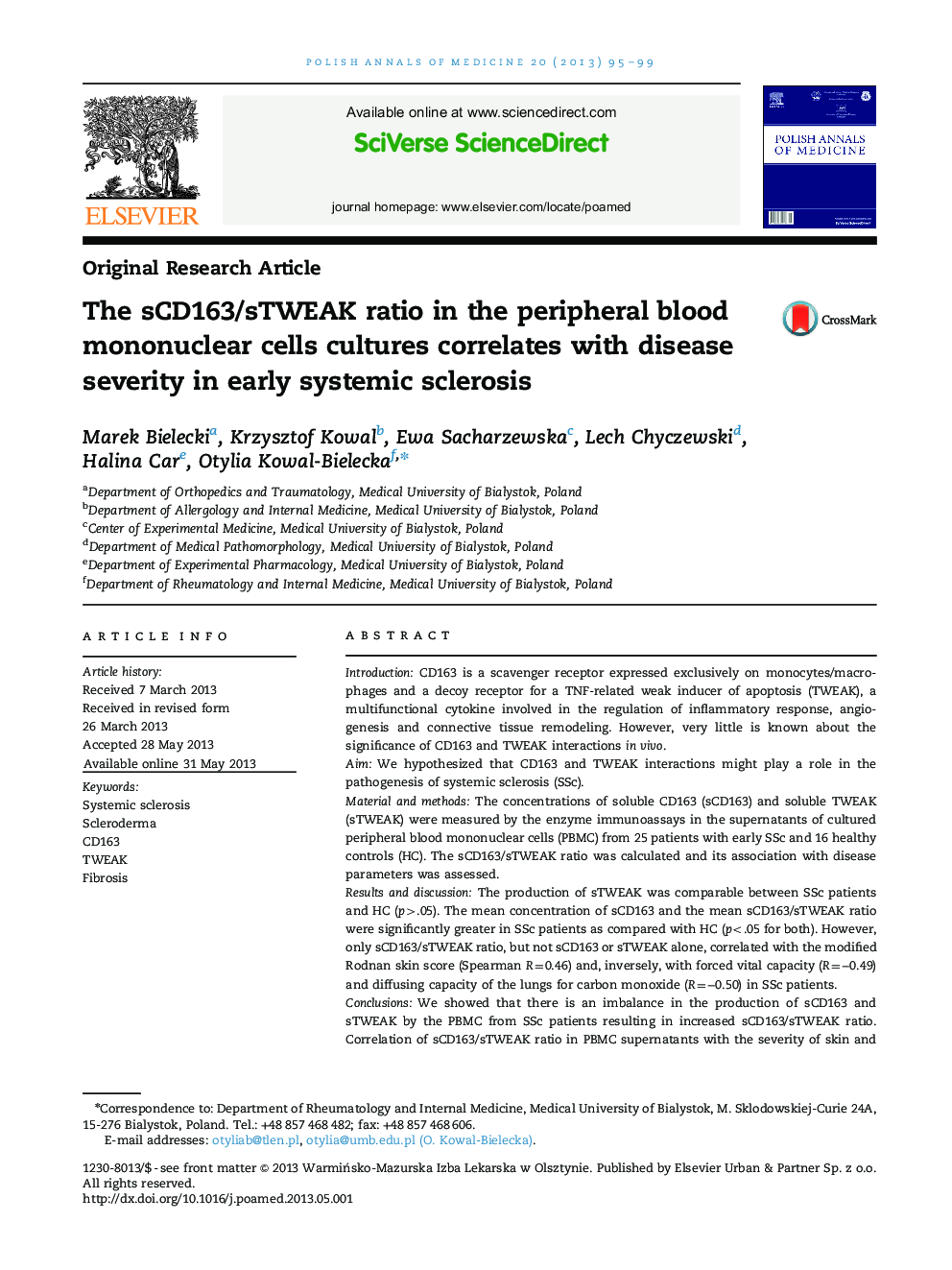| Article ID | Journal | Published Year | Pages | File Type |
|---|---|---|---|---|
| 2678675 | Polish Annals of Medicine | 2013 | 5 Pages |
IntroductionCD163 is a scavenger receptor expressed exclusively on monocytes/macrophages and a decoy receptor for a TNF-related weak inducer of apoptosis (TWEAK), a multifunctional cytokine involved in the regulation of inflammatory response, angiogenesis and connective tissue remodeling. However, very little is known about the significance of CD163 and TWEAK interactions in vivo.AimWe hypothesized that CD163 and TWEAK interactions might play a role in the pathogenesis of systemic sclerosis (SSc).Material and methodsThe concentrations of soluble CD163 (sCD163) and soluble TWEAK (sTWEAK) were measured by the enzyme immunoassays in the supernatants of cultured peripheral blood mononuclear cells (PBMC) from 25 patients with early SSc and 16 healthy controls (HC). The sCD163/sTWEAK ratio was calculated and its association with disease parameters was assessed.Results and discussionThe production of sTWEAK was comparable between SSc patients and HC (p>.05). The mean concentration of sCD163 and the mean sCD163/sTWEAK ratio were significantly greater in SSc patients as compared with HC (p<.05 for both). However, only sCD163/sTWEAK ratio, but not sCD163 or sTWEAK alone, correlated with the modified Rodnan skin score (Spearman R=0.46) and, inversely, with forced vital capacity (R=−0.49) and diffusing capacity of the lungs for carbon monoxide (R=−0.50) in SSc patients.ConclusionsWe showed that there is an imbalance in the production of sCD163 and sTWEAK by the PBMC from SSc patients resulting in increased sCD163/sTWEAK ratio. Correlation of sCD163/sTWEAK ratio in PBMC supernatants with the severity of skin and lung involvement indicates that interaction of these two molecules might affect the development of SSc.
